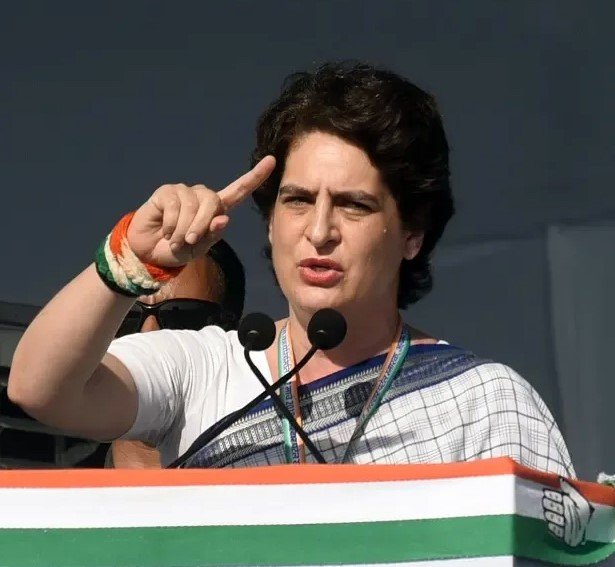As Amit Shah defends handling of Pahalgam, Priyanka Gandhi demands resignation; Defence Minister Rajnath hints at military action resuming
New Delhi’s Parliament building felt more like a war room than a legislative chamber on Tuesday. For the seventh day of the Monsoon Session, tensions flared in both Houses as lawmakers locked horns over the government’s handling of the recent Pahalgam terror attack and the military response dubbed Operation Sindoor.
Union Home Minister Amit Shah and Defence Minister Rajnath Singh took turns addressing the House, each laying out the chronology of decisions taken in the wake of the July 20th assault in Pahalgam, Jammu and Kashmir. But it wasn’t just a statement session. The opposition, led vocally by Priyanka Gandhi Vadra, brought the heat—demanding accountability, answers, and resignations.
“Why Has the Home Minister Not Resigned?”
Congress MP Priyanka Gandhi Vadra didn’t mince words. Addressing the Lok Sabha with rare directness, she grilled Amit Shah and accused the government of “criminal negligence” in failing to prevent the Pahalgam ambush that claimed the lives of 11 CRPF jawans.
“Why is the Home Minister still in office after such a catastrophic intelligence failure?” she asked, her tone cutting and deliberate. “If a terror alert was issued 72 hours earlier, who slept on it? And why did our men walk into a death trap unguarded?”
The BJP benches erupted in protest. Several ministers shouted “shameful politics” while others demanded Priyanka withdraw her remarks. But the Congress leader didn’t budge.
In a moment that sent murmurs through the gallery, she held up a copy of an internal CRPF memo dated July 17, which reportedly warned of heightened terror activity in South Kashmir. “This paper could’ve saved lives,” she said, holding it aloft. “Instead, we’re reading obituaries.”

Amit Shah Defends Government, Cites Timeline
Responding shortly after, Amit Shah laid out a precise timeline of the events. According to the Home Minister, intelligence agencies had indeed flagged threats but “the nature and location of the attack could not be specifically predicted.”
He said inputs were shared with the Jammu and Kashmir Police, CRPF, and the Indian Army. “Our forces did not fail. They acted with valour. The failure was in anticipating the exact modus operandi,” he said.
Shah added that the perpetrators were neutralised within 36 hours of the ambush through Operation Mahadev, which was conducted in coordination with local police. “The valley is still vulnerable, but we have busted a major module,” he said.
Still, Shah’s tone was defensive—his usual assertiveness appearing dimmed under the weight of bipartisan pressure.
Rajnath Singh Issues Stern Warning to Pakistan
In the Rajya Sabha, Defence Minister Rajnath Singh gave a fiery speech, describing Operation Sindoor as a “necessary deterrent” and cautioning Pakistan against misreading India’s current ceasefire position.
“Let me make it crystal clear,” Singh said. “Operation Sindoor has not ended. It is only paused. If Pakistan attempts another misadventure—even by proxy—India will strike harder and faster.”
His statement drew immediate applause from BJP MPs but a skeptical silence from others. Some opposition leaders, including RJD’s Manoj Jha and TMC’s Derek O’Brien, questioned why the operation was suspended in the first place.
Singh replied that India’s international partners, especially in the Gulf and Southeast Asia, had been briefed and assured that India remained committed to strategic restraint, even while being operationally prepared.
PM Modi Expected to Speak Next
Prime Minister Narendra Modi is expected to make a statement in the Lok Sabha later Tuesday evening or early Wednesday morning, according to officials in the Speaker’s office.
While there’s no official word on whether he will address Priyanka Gandhi’s remarks or stick strictly to operational matters, sources say the Prime Minister wants to underscore that India’s posture remains one of “controlled readiness.”
One BJP MP put it more bluntly: “The Prime Minister will not tolerate political exploitation of soldier deaths.”
The Backstory: Operation Sindoor and Mahadev
Both operations stemmed from the July 20 ambush on a CRPF convoy in Pahalgam’s Lal Chowk area. Militants from the Pakistan-backed Tanzeem-e-Qudrat group attacked with IEDs and automatic rifles.
Here’s a quick breakdown of what followed:
-
July 21: Operation Mahadev launched to locate and neutralize the attackers.
-
July 23: Three militants killed, one detained.
-
July 24–27: Operation Sindoor initiated across LoC zones in Kupwara and Baramulla, involving air surveillance and limited shelling.
-
July 28: India paused active military operations following backchannel messages from Islamabad.
Midnight Session, Long Shadows
Late Monday night, the Lok Sabha sat till midnight, extending the debate well past usual hours. Lawmakers traded barbs, but also tried to digest the seriousness of what was unfolding.
At one point, SP leader Akhilesh Yadav asked if India had received intelligence on cross-border camps being revived in Neelum Valley. Shah declined to respond directly, citing operational secrecy.
Meanwhile, in Srinagar, security was visibly tightened, with extra deployment of paramilitary troops in Anantnag and Kulgam districts.
Is the Ceasefire Still Holding?
A lingering question in Tuesday’s debates was whether the unofficial ceasefire between India and Pakistan—reportedly brokered through Gulf intermediaries—is still intact.
While External Affairs Minister S. Jaishankar said on Monday that the ceasefire “had no linkage with U.S. trade interests,” insiders say there was subtle pressure from Washington to de-escalate. The United States remains keen on maintaining stability in the subcontinent ahead of its own election cycle.
One senior official in South Block said: “The ceasefire’s holding, but it’s built on eggshells.”
